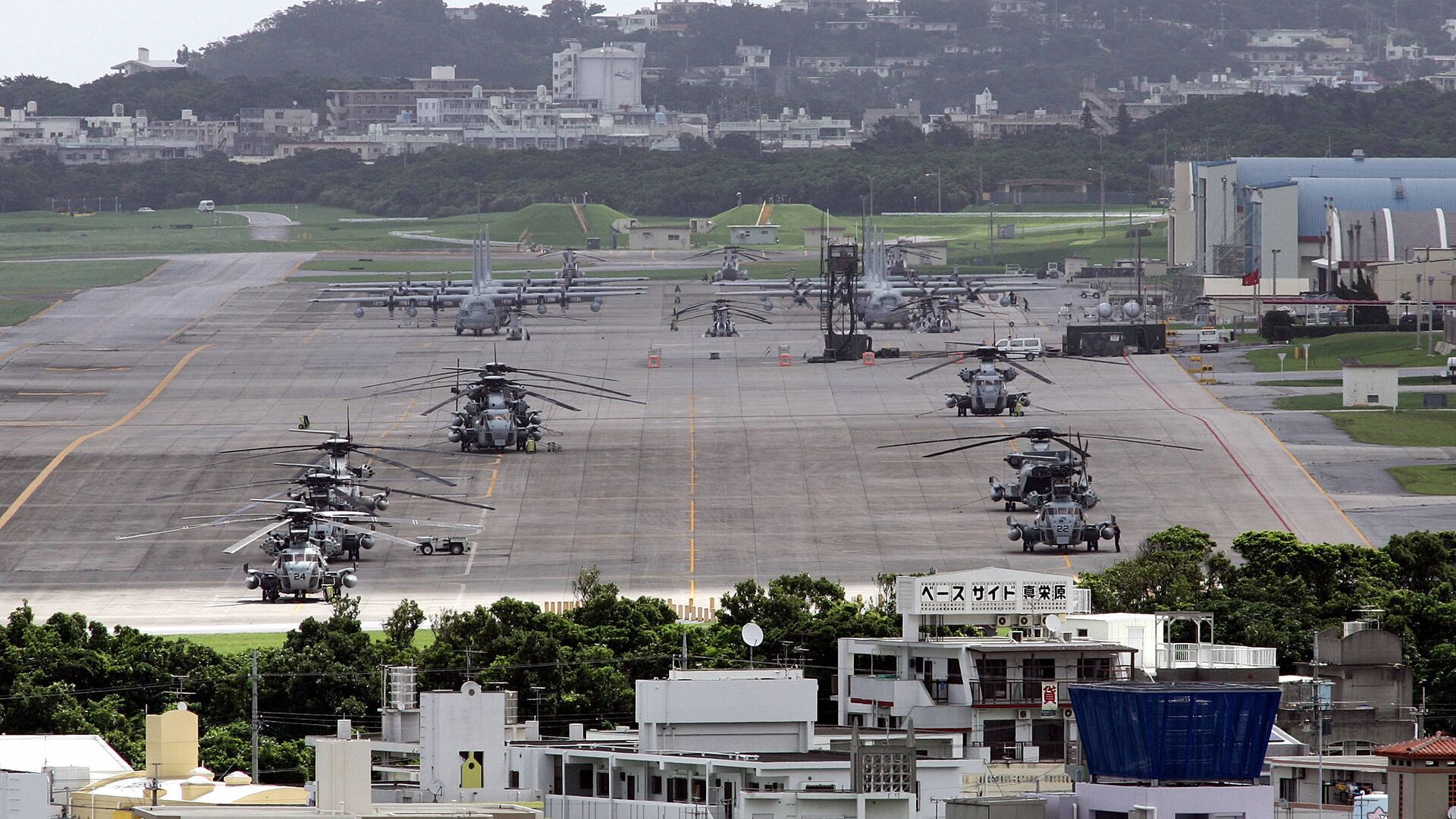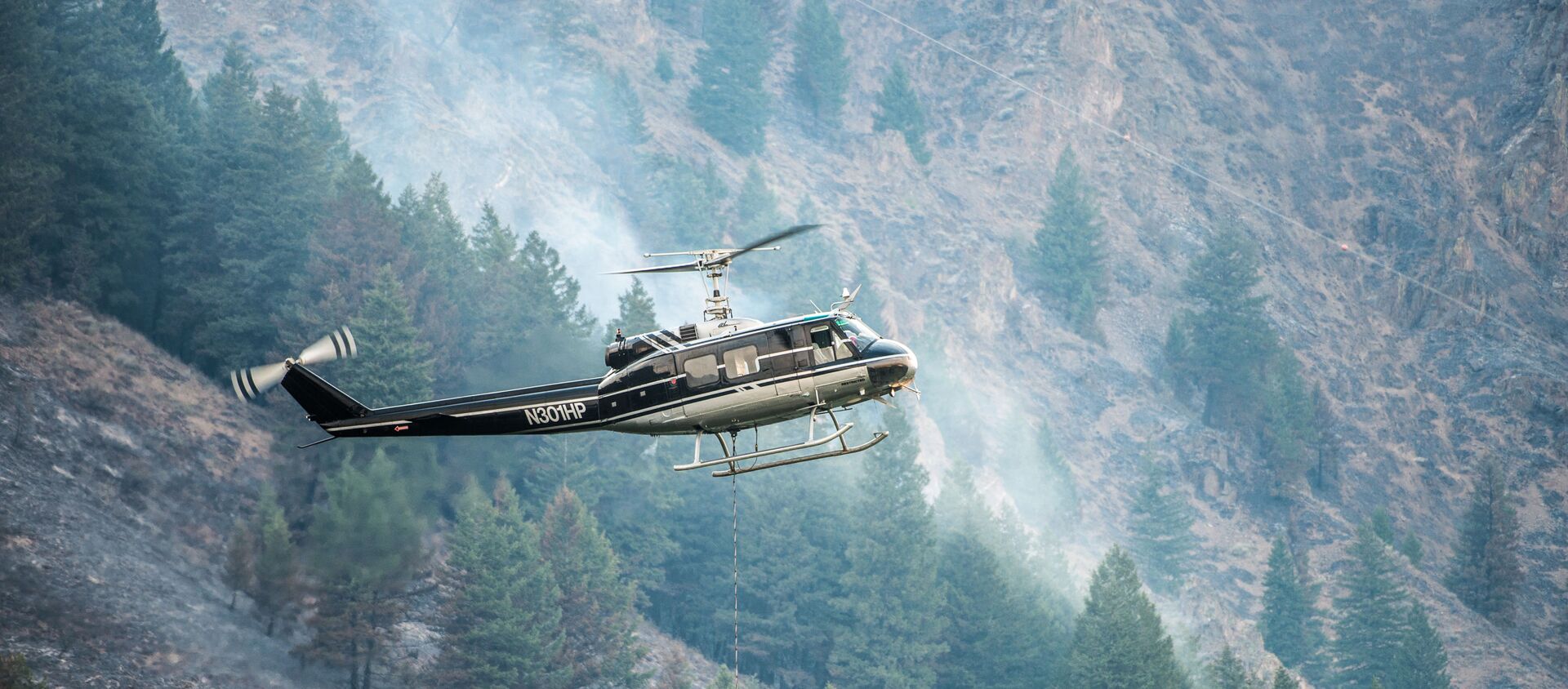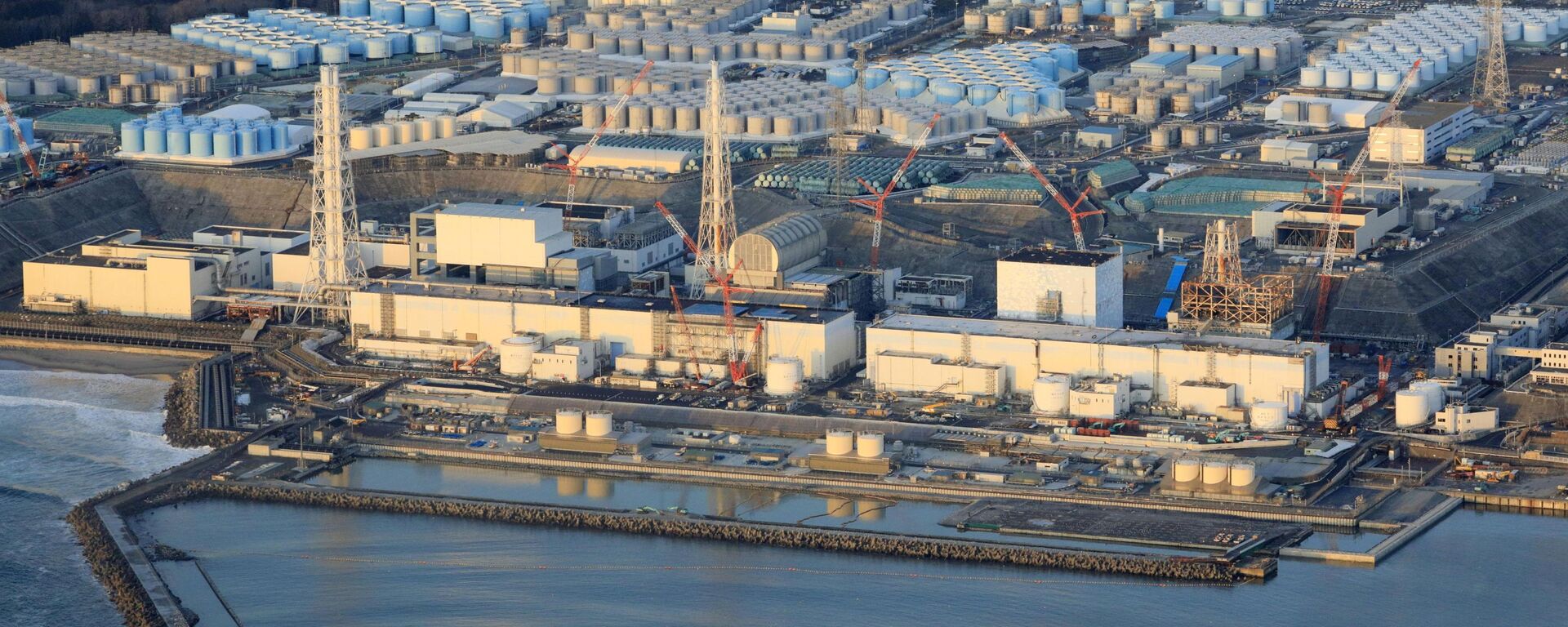‘What Goes Around Comes Around’: Chinese Media Mock Japan Over US Release of Toxic Water in Okinawa
14:32 GMT 04.09.2021 (Updated: 18:12 GMT 04.09.2021)

© AFP 2023 / TORU YAMANAKA
Subscribe
In April, Japan’s neighbours expressed outrage over Tokyo’s plans to release 1.23 million tonnes of contaminated wastewater from a storage facility at destroyed Fukushima Daiichi Nuclear Power Plant into the Pacific Ocean. Japanese authorities have insisted that the wastewater is safe, but environmental groups have contested such claims.
China Global Television Network (CGTN), a Beijing-based English-language TV news service, has poked fun at Japanese authorities over the apparent hypocrisy shown by Tokyo when it comes to the dumping of hazardous wastewater.
In recent weeks, Japanese media, government officials and environmental activists have been up in arms over plans by US forces in Okinawa to dump potentially dangerous chemicals into the local sewage system.
The scandal began to gather steam in June, when the Pentagon reported the leakage of water containing toxic materials from a US Army storage facility in Uruma and other locations across the strategically situated islands. In July, the US military informed Okinawa authorities of plans to release treated but potentially hazardous wastewater to prevent the danger of another leak.
The US military insisted that the wastewater was treated to Japanese government standards and safe to drink, and began dumping it into the local sewage system on 26 August. The water was known to contain trace concentrations of organofluorine compounds, including perfluorooctanesulfonic acid and perfluorooctanoic acid. Scientific studies have indicated that these chemicals can affect the health of wildlife, with the potential to cause reduced immunoglobulin levels and brain asymmetry in offspring, and to result in increased risk of chronic kidney disease and other ailments among humans. The chemicals’ resistance to natural break-up and tendency to accumulate in organisms have led them to be dubbed “forever chemicals". Japan banned the production of the acids in 2010, and established strict guidelines on safe levels of the substances of less than 50 nanograms per litre of water last year.
The US military informed Japanese authorities of its plans to dump the chemical-laced water less than an hour before starting, and insisted that their wastewater contained less than 2.7 nanograms of the acids.
Okinawa authorities asked for an immediate halt to the dumping, but the US military apparently ignored their protest, releasing at least 64,000 litres of the potentially toxic wastewater into the sewage system, with the water then dumped into the ocean because of the system’s inability to treat it. Before proceeding with the dump, US forces turned down a local company’s offer to treat the water, deeming it prohibitively expensive.
At a news conference organised on the day the water was dumped, Okinawa Governor Denny Tamaki expressed outrage over the release of the contaminated water. “I feel strong outrage that the US military unilaterally dumped the water even while they knew discussions were proceeding between Japan and the United States on how to handle the contaminated water,” he said.
Last week, Japan’s national authorities formally intervened, with Environment Minister Shinjiro Koizumi issuing a strong protest and saying that the US Marines’ decision to dump the water was “extremely regrettable".
“Local residents are very anxious,” Koizumi complained, while promising to work with the relevant ministries and Okinawa authorities “to ensure this is handled in an appropriate manner, as well as reconfirm the details with the United States.”
In a separate statement, Defence Minister Nobuo Kishi said that he had asked US forces to stop dumping any more contaminated water.
Environment Ministry and Defence Ministry officials visited Okinawa this past week to discuss the problem, offering a rare public apology to Masanori Matsugawa, the mayor of Ginowan, Okinawa, the city potentially worst affected by the dumping. “We extend our deepest apology,” Makoto Ikeda, the head of the Defence Ministry’s environmental policy division told Matsugawa. “We also consider it extremely regrettable that the water was dumped so suddenly,” he added.
China’s CGTN poked fun at the Japanese government over the calamity on Saturday, tweeting a political cartoon showing a Japanese man nonchalantly dumping nuclear wastewater from the Fukushima nuclear plant into the ocean, and then complaining as a Marine is pictured dumping hazardous water into Okinawa’s sewage system.
What goes around comes around #CGTNOpinion #cartoon pic.twitter.com/P89Ku3O8cA
— CGTN (@CGTNOfficial) September 4, 2021
In April, Japanese authorities were attacked by local environmentalists, and by Japan’s neighbours, over their plans to dump some 1.23 million tonnes of treated and diluted cooling water from the Fukushima plant into the Pacific Ocean. Officials in Tokyo insisted that the water was safe, and that it had been treated through an advanced processing system to remove contaminants and radioactivity. Environmental activists pointed out, however, that the treatment did not remove a contaminant known as tritium – a radioactive isotope or variant of hydrogen which can be extremely hazardous if ingested, leading to cancers among living organisms.
Authorities in China, South Korea, Russia and other countries urged Japan to cancel its plans, which have now been pushed back to the year 2023 pending a review by regulators.
The US military has maintained a heavy military presence on Okinawa since the end of the Second World War, and its forces have been known to cause a neverending series of scandals, ranging from noise complaints about deadly incidents associated with the crash of US aircraft, to crimes involving the rape or sexual molestation of local residents by Marines. Some local residents are involved in campaigns to kick US troops off the islands for good, but these initiatives have so far fallen on deaf ears in both Tokyo and Washington.





